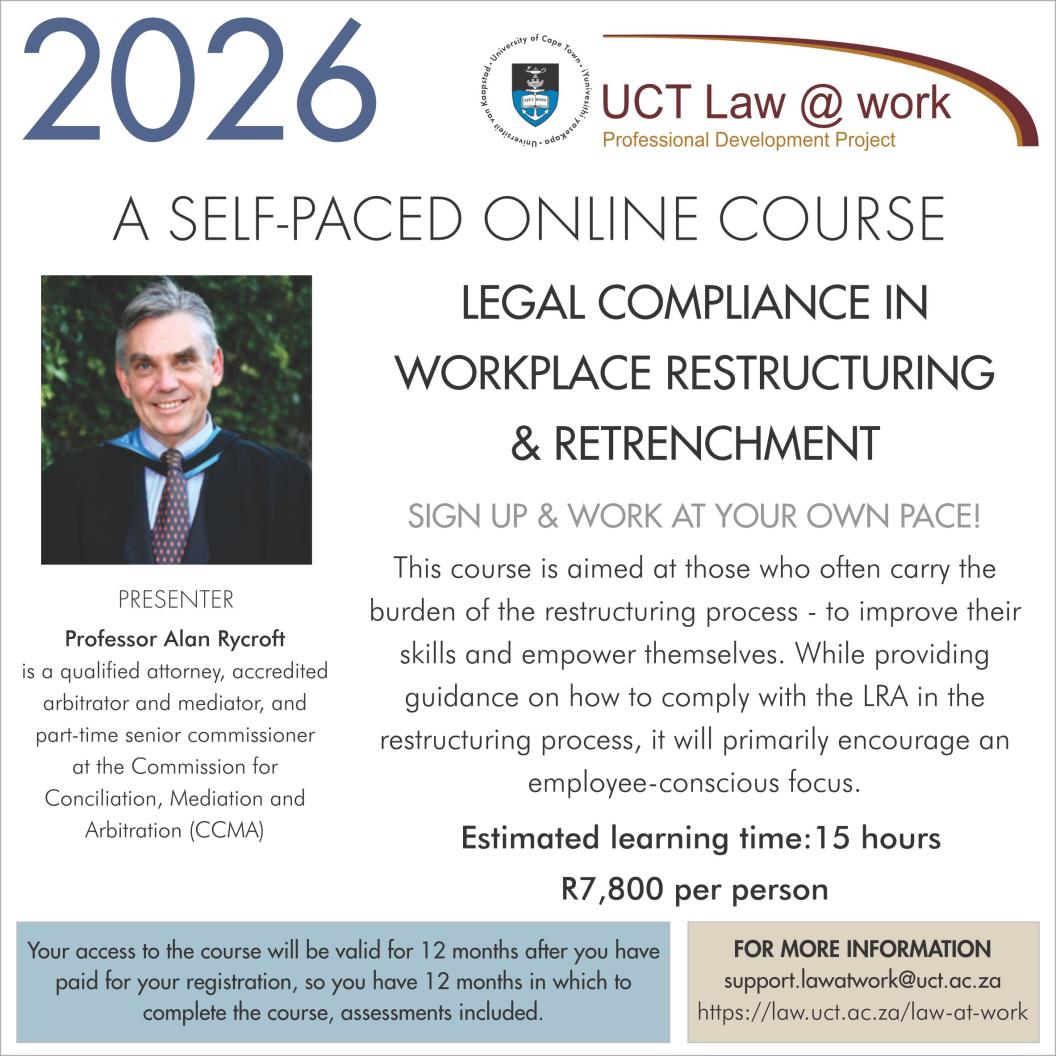
With the South African working environment looking rather bleak, restructuring and retrenchment are an unfortunate reality for many corporations and institutions.
Most large-scale retrenchment exercises are usually initiated and followed through by labour attorneys to ensure compliance with the Labour Relations Act (LRA). But it is managers and HR specialists in each workplace who have to interact with the employees, issue the Section 189 Notices, negotiate with trade unions, cope with the highly emotional fall-out, and generally administer the entire process.
This course is aimed at those who often carry the burden of the restructuring process to improve their skills and empower themselves. While providing guidance on how to comply with the LRA in the restructuring process, it will primarily encourage an employee-conscious focus. Participants will be prompted to properly assess whether retrenchment is necessary, to assess the impact of the retrenchments on the loyalty of remaining employees, to think clearly about alternatives to retrenchment, to ensure that both outplaced and remaining employees are given the support they require, to make sure that consideration is given to upskilling or reskilling, and to consider the CCMA’s Training Layoff Scheme.
Course outline
Module 1: Managerial prerogative & restructuring
Module 2: Understanding the legal requirements
Module 3: Reasons to retrench retrench
Module 4: Alternatives to retrenchment
Module 5: The employees’ remedies
Module 6: Post-retrenchment process
Who will benefit from this course?
The course is aimed at managers and HR specialists, and will also be beneficial to any executives, CEOs, inhouse counsel, and trade union administrators who wish to learn more about the restructuring process and empower themselves to make better decisions within that process.
Presenter
Alan Rycroft is a qualified attorney, accredited arbitrator and mediator. Since 1983 he has been a law teacher, initially at the University of KwaZulu-Natal in Durban, where from 1995 to 2000 he was dean of the Faculty of Law. He moved to UCT in 2009, where he held the Chair in Commercial Law. Practising and teaching initially in maritime law, he developed an interest in labour law, and has published widely in this area. For many years he was one of the co-organisers of the Annual Labour Law Conference. Arising from his interest in labour law is an involvement in dispute resolution. He has been a part-time senior commissioner at the Commission for Conciliation, Mediation and Arbitration (CCMA). He has also served on the panel of arbitrators for the SA Local Government Association.
When?
The course is self-paced, so you can register at any time and work through the material at your own schedule. The course has an estimated learning time of 15 hours.
Your access to the course will be valid for 12 months after you have paid for your registration, so you have 12 months in which to complete the course.
How much?
R7,800 per participant
Certificate
A certificate of participation from UCT will be issued to those who complete the course.
How to sign up
Complete and submit the registration form. You will then be given the payment information.
Download the course brochure for more information.
